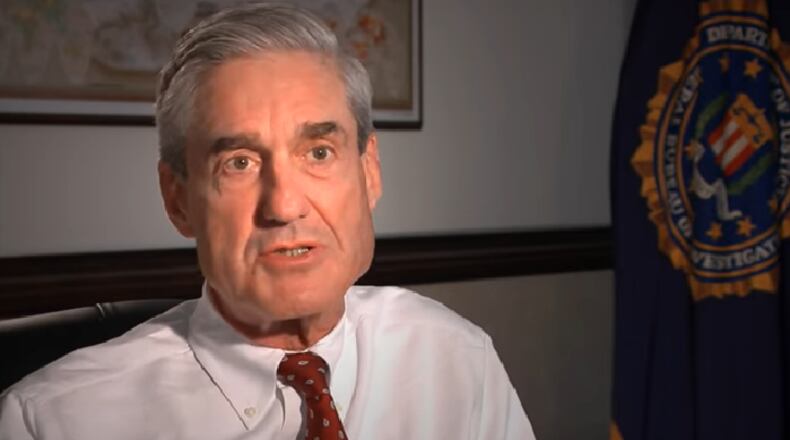As Special Counsel Robert Mueller submitted a report to the U.S. Attorney General on Friday concerning the investigation into Russian interference in the 2016 elections, many questions remain unanswered about what Mueller had uncovered, what legal actions still must take place related to the investigation, and just how much of the report that lawmakers in Congress will be able to review in coming months.
Even before the contents of the Mueller report - initially described as 'comprehensive' - were known, there were certainly metrics for the Special Counsel investigation, which netted a series of guilty pleas, and one trial conviction, that of former Trump campaign manager Paul Manafort on charges of tax and bank fraud.
Court filings by the Special Counsel's office demonstrated a sweeping effort by Russian Intelligence agents to hack emails and other documents from Democratic Party officials in the U.S., and showed how a number of people with ties to the President lied to Mueller's investigators when asked about their links to certain Russians under scrutiny by the feds.
1. Will the Congress actually get to see the Mueller report? This is not as simple as it might seem, as the Special Counsel law does not guarantee that the Congress will get the details of the Russia findings. The decision on how much is shared with the Congress - and whether it can be shared with the public - is first up to the Attorney General William Barr. Under the law, Barr is supposed to review the report, and then send a summary to lawmakers, something he may do as soon as this weekend. But that's not the Mueller report. And it's clear that members of both parties want to read it.
2. What about the Mystery Case? Even while the Special Counsel is closing down his work, it doesn't mean the loose ends are just going to vanish into thin air. For example, the U.S. Supreme Court was considering on Friday - just hours before the Mueller report was submitted - whether or not to grant a hearing on a case involving an unknown foreign company owned by an unidentified foreign country which has been subpoenaed for the Mueller investigation. If the trial for Roger Stone is going to continue, then why wouldn't the legal wrangling over "Country A" go on as well? Just one of the many unknowns at this point.
3. What about other federal prosecutors? As we have seen during the Mueller investigation, the Special Counsel at times farmed out certain cases to U.S. Attorneys in the Southern District of New York, or the Eastern District of Virginia. Could those matters - emerging from the Mueller investigation - still continue even after the Special Counsel is playing golf in coming weeks? That's also a big unknown. Certainly, it's always been a fervent hope of Democrats that something happens along those lines - but there's definitely no guarantee.
4. Will we ever hear from Robert Mueller? Unlike Watergate, unlike the Monica Lewinsky investigation, Robert Mueller has not made any public comments or held press conferences. It has probably driven both the White House and Democrats absolutely batty to see him be so quiet. Some Democrats have already suggested that Mueller be called before the Congress to testify on what he found, just like Independent Counsel Ken Starr was given the chance to outline his findings before the House Judiciary Committee against President Clinton in 1998.
5. There still is a lot going on in the "Mueller" probe. I don't want to belabor this point, but even with Mueller on the golf course, lots of legal wrangling will have to continue on an array of fronts. A judge must still give former Trump National Security Adviser Michael Flynn his sentence. Roger Stone's trial doesn't start until November. Paul Manafort's aide Rick Gates is still cooperating with the feds and has not been sentenced as yet. Andrew Miller - an associate of Roger Stone - is still being asked to testify before a federal grand jury. So, even with Mueller's report now filed - and even before we know the details - the impact of the Mueller investigation isn't "over" - so to speak.
6. Waiting on the details. We still don't know what's in the Mueller report. And yet, everyone on the news is talking about it. I've been counseling for months about this investigation that one should wait to see actual documents before marching off to any conclusions. The same can be said of the Mueller probe. Has Mueller delivered total exoneration for the President? We really don't know. While Mueller's office won't be delivering more indictments, could more be in the pipeline? We don't know. Will this report recommend impeachment, or be silent on that issue? We don't know. If this was like the Starr Report, we would have all of the information. Instead, we have to wait.
About the Author
The Latest
Featured



